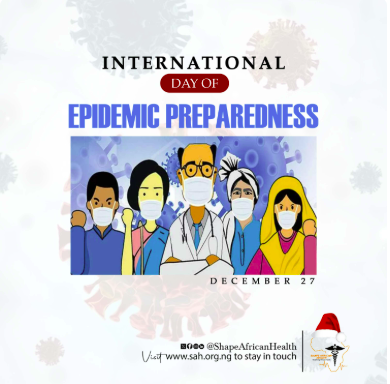Important infectious
diseases and epidemics have catastrophic effects on human lives and wreak havoc
on long-term social and economic development, as the current coronavirus
disease (COVID-19) pandemic demonstrates. Global health crises pose a threat to
the already overburdened health systems, global supply networks, and the lives
of people, particularly women and children, as well as the economies of the
most vulnerable and impoverished nations.
Strong and resilient
health systems that serve the vulnerable and those in precarious situations are
desperately needed.
Future epidemics may
be more severe and intense than previous outbreaks if there is no worldwide
attention given to the matter. To effectively prevent and respond to epidemics,
there is a huge need for information sharing, scientific knowledge and best practices,
high-quality education, and advocacy programs on epidemics at the local,
national, regional, and international levels.
To have the earliest
and most effective response possible to any potential epidemic, it is crucial
to enhance epidemic prevention by putting the lessons learned about epidemic
management and how to prevent the cessation of essential services to use, as well
as to increase preparedness and acknowledge the importance of an integrated One
Health approach that promotes the integration of human health, animal health,
and plant health, in addition to the environment and other pertinent fields.
In the fight against
epidemics, multilateralism and international collaboration are crucial. In all
phases of epidemic management, we must emphasize the value of cooperation and
solidarity between every individual, community, state, regional and international
organization. We also need to emphasize the relevance of taking a gender
perspective into account in this regard.
Cite: United
Nations
World
Health Organization (WHO)
Nigeria
Centre for Disease Control

